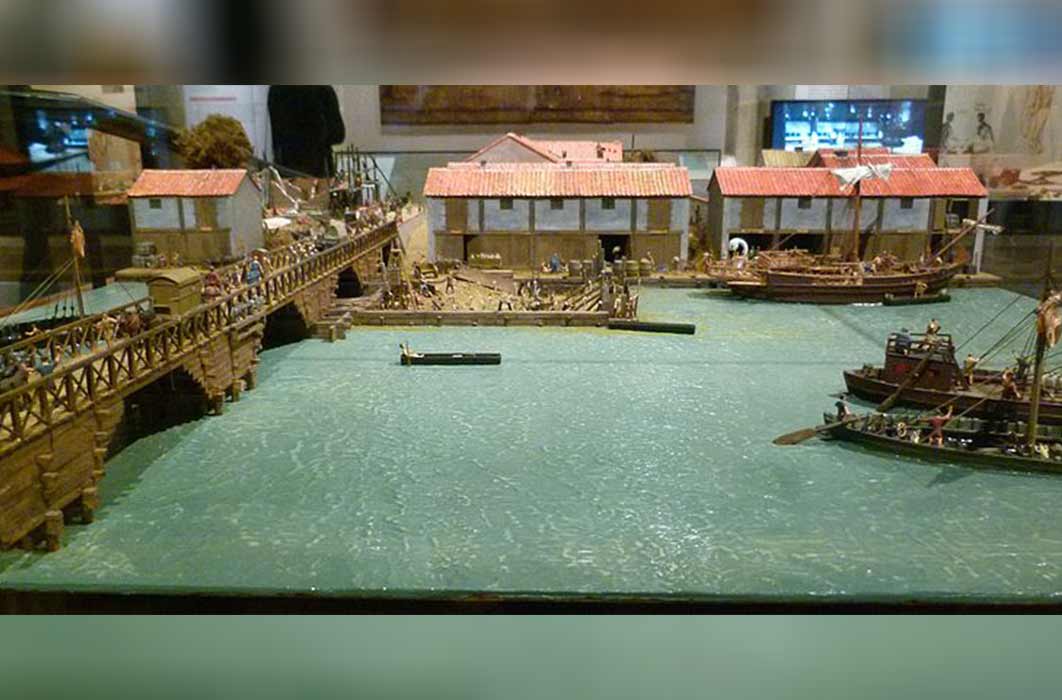
Roman London’s Port Became Redundant In The Third Century AD
A series of changes that contributed to the redundancy of London’s port took place during the period of wider disruptions known as the ‘Third-Century Crisis’ - a time of political instability, plague, barbarian invasion, and economic turbulence. The utility of the term ‘crisis’ has recently been questioned, given the variations of circumstance, but in many spheres the problems were acute.
The Third-Century Crisis
The historical narrative tends to start with the assassination of the emperor Severus Alexander in 235 AD, after which there was a rapid succession of brief reigns and damaging frontier wars. In the north-west provinces matters reached a breaking point around 258 AD, when the Emperor Gallienus weakened control of the Rhine frontier by transferring troops to Pannonia. Franks and Alemanni from beyond the Rhine, who had been a threat throughout the 250s AD, used this opportunity to raid deep into Gaul. Order was restored by troops commanded by Postumus, who then rebelled from Gallienus’ rule to establish a Gallic Empire (Imperium Galliarum) that divorced Gaul, Britain and Spain from the rest of the empire for some 15 years.

Bust of Emperor Gallienus in the Romano-Germanic Museum of Cologne. (Mid- the third century AD) (Public Domain)
There were several other contributory factors to this decline. Studies of the Third-Century Crisis are particularly exercised by the evidence of a currency debasement, contributing to the collapse of the Augustan monetary system in the 260s AD. This was also a turning point in architectural history: few monumental buildings were erected and the practice of setting-up of commemorative inscriptions largely ceased, witnessing a retreat from the earlier values of civic euergetism.

The angel of death striking a door during the plague of Rome by Levasseur after J. Delaunay. (Wellcome Images / CC BY-SA 4.0)
Research by Kyle Harper has drawn attention to the way in which Rome’s military and economic setbacks may have been provoked by another pandemic that swept the empire in the 250s AD. This plague, suggested by some to have been influenza or viral fever, cruelly echoed the disruptions of the ‘Antonine Plague’ a century earlier. It is known to historians as the ‘Plague of Cyprian’, after the bishop of Carthage who described its impact in letters written circa 252 AD, and can tentatively be traced back to an outbreak in Alexandria in Egypt circa 249 AD, from where it reached Rome early in 251 AD. The historical accounts imply recurring pestilential outbreaks, but we cannot be certain that they shared a common cause. The evidence is uncertain and contested, but Harper builds a credible case for considering this pandemic to have been critical to the disruptions of the period, adding exogenous shock to a system that was already under considerable stress.
This begs the question of how much London might have been affected by these problems? There is no reason to believe that Britain was other than a peaceful part of Postumus’ Gallic Empire, but evidence suggests that London was more profoundly changed than is sometimes assumed. The closure of the port can in part be seen as a consequence of the unsustainable nature of its earlier growth.





